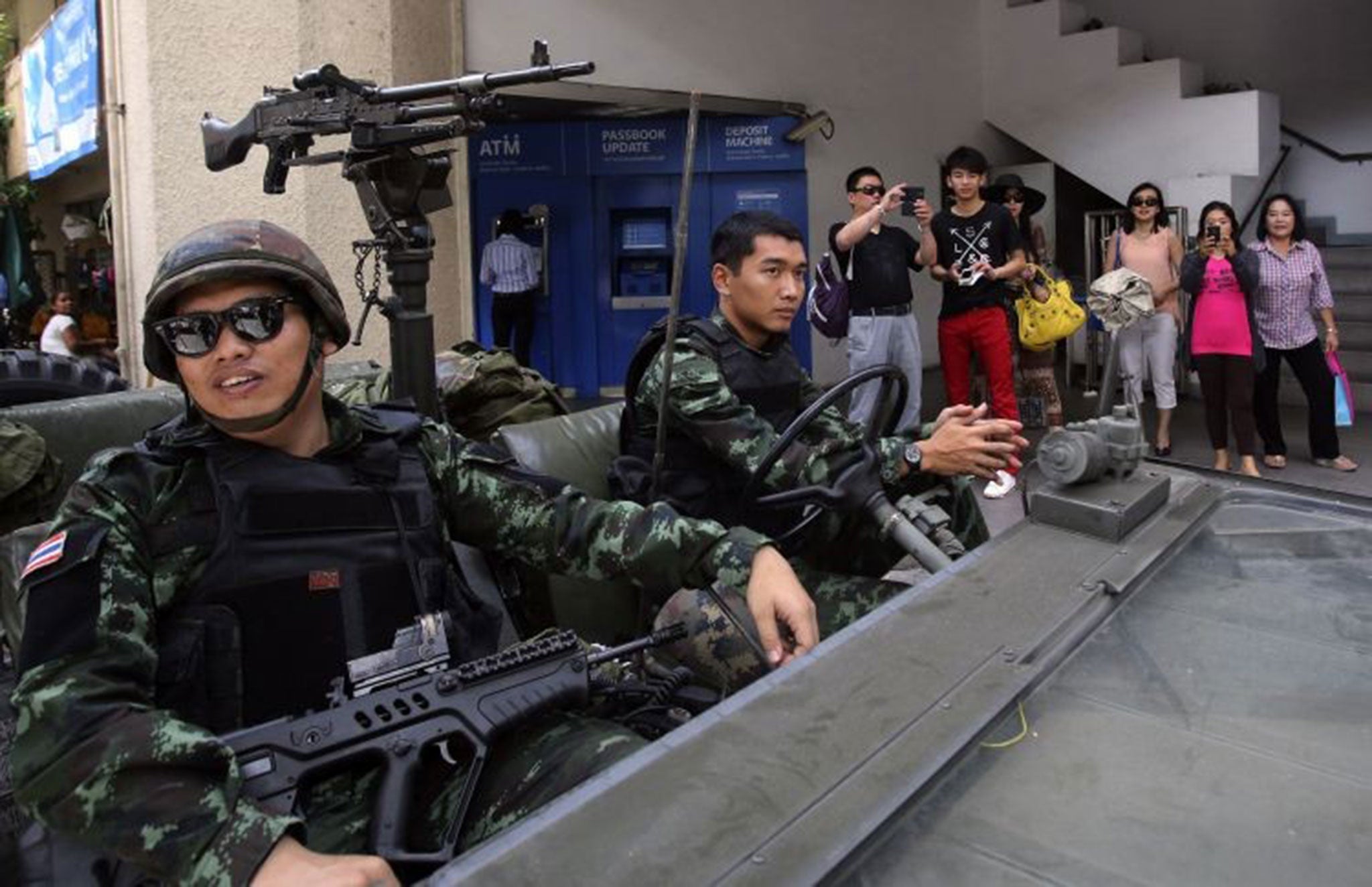Thailand coup travel Q&A: Is it safe for visitors, and what are travellers’ options?
Thailand's military has taken control of the country. But what does this mean for people holidaying there?

Your support helps us to tell the story
From reproductive rights to climate change to Big Tech, The Independent is on the ground when the story is developing. Whether it's investigating the financials of Elon Musk's pro-Trump PAC or producing our latest documentary, 'The A Word', which shines a light on the American women fighting for reproductive rights, we know how important it is to parse out the facts from the messaging.
At such a critical moment in US history, we need reporters on the ground. Your donation allows us to keep sending journalists to speak to both sides of the story.
The Independent is trusted by Americans across the entire political spectrum. And unlike many other quality news outlets, we choose not to lock Americans out of our reporting and analysis with paywalls. We believe quality journalism should be available to everyone, paid for by those who can afford it.
Your support makes all the difference.Tourists in Thailand, and people with plans to travel there, are watching the political turmoil in the country with increasing alarm. The Thai army has taken control of the country, and is promising to restore stability after months of unrest between supporters and opponents of the government. But the Foreign Office is warning British visitors of the risk of “a violent reaction” to the military coup d’etat. So where does that leave holidaymakers who have plans to go to Thailand – and should people with friends and family there be worried?
Q The army has imposed a curfew – what does that mean for travellers?
Like everyone else in the country, tourists have to stay indoors overnight. The tourism authority is warning travellers throughout Thailand that they “must return to their accommodation before 10pm and not leave again until after 5am” in order to comply with the nationwide curfew. The only exception is for travellers who need to travel to or from the airport. Anyone who does have a flight to catch is being told to have their passports and tickets ready for inspection at army checkpoints, and to allow at least four hours for check-in. The national airline, Thai Airways, says flights are operating normally and that “passengers are reassured that they will be well cared for under all circumstances”.
Q How serious are the risks facing tourists?
The Foreign Office has stopped short of advising people to leave Thailand – or to cancel plans to go there – saying “The Chief of the Royal Thai Army has assured the safety of all foreigners in Thailand”. But it does urge British travellers to monitor local news and social media. As circumstances change, the army is making announcements in English – but there are reports that foreign media, including BBC World, are being taken off-air. The latest Foreign Office bulletin, issued late yesterday, urged travellers to “exercise extreme caution and remain alert to the situation. If you’re in any doubt about your safety, stay in your accommodation.”
Q Which doesn’t sound like much of a holiday. Is the whole country affected?
Not to anything like the same degree as Bangkok. While there has been conflict and sporadic violence in the capital, in the tourist areas – the islands and beaches in the south, and the northern highlands around Chiang Mai – life is continuing in its usual mellow fashion. To put things in perspective, since the 1930s military coups have been taking place in Thailand on average every seven years, and life in most of the nation has in the past been largely unaffected.
At present, no-one can change or cancel their plans without penalty. Kuoni, which has a significant share of tourism business to Thailand, says: “All political demonstrations to date have taken place in Bangkok with no reports of any incidents affecting tourists.” The firm says “normal booking conditions will apply,” which means that anyone wanting to cancel will lose all their money for trips due to begin within two weeks, or at least half their money if they are due to travel within the next two months. Other tour operators have similar conditions, and travel insurance does not cover “disinclination to travel”. If the Foreign Office were to change its advice and urge Brits to avoid Thailand, then holidaymakers already in the country would be brought home; people whose planned holidays are affected would be entitled to their choice of either a refund or to switch holidays.
Many of the 800,000 British visitors to Thailand are travelling independently – booking a flight then making their own arrangements for accommodation. They are in a trickier position. Whatever the Foreign Office advice, if a flight is still operating then passengers have no rights to cancel – though in the past airlines such as British Airways have allowed flexibility to postpone trips or switch destinations.
Join our commenting forum
Join thought-provoking conversations, follow other Independent readers and see their replies
Comments